November is the month of shopping extravaganzas, even in this COVID-19 era. The Double Eleven shopping festival in China, and the Black Friday and Cyber Monday are all happening this month, bombarding customers with new products and door-busting deals. Some choose to snag those deals while some remain rational and with a lucid mind and prefer to keep every "pay now" button-click under control, respecting their budget.
04:09
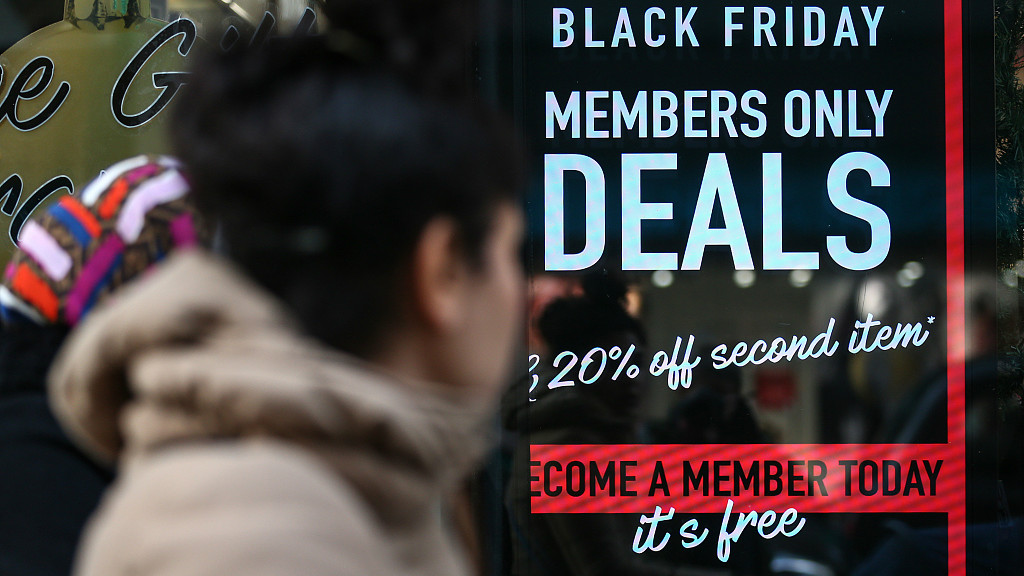
In this episode of "The Chat Room," we invited several guests from China, U.S., New Zealand, and Russia to debate consumption habits and share their opinion about stocking or not stocking up during this shopping season.

CGTN's livestreaming program "The Chat Room" aired in Beijing,China, November 27, 2020. /CGTN
CGTN's livestreaming program "The Chat Room" aired in Beijing,China, November 27, 2020. /CGTN
Shopping season during COVID-19 times
Coronavirus has changed nearly every aspect of our daily lives, and shopping is no exception. Beyond impacting some of the factors that determine consumer spend — such as consumer confidence, unemployment, cost of living, and social distancing policies — the pandemic has also drastically altered how and where customers choose to spend their hard-earned money.
Instead of diluting the atmosphere of the extravaganza, the pandemic spiked e-commerce as it drives people online. Those shopping festivals might be the only full-on holiday for people around the world now. But does it really help stimulating or restoring this year's wrecked economy?
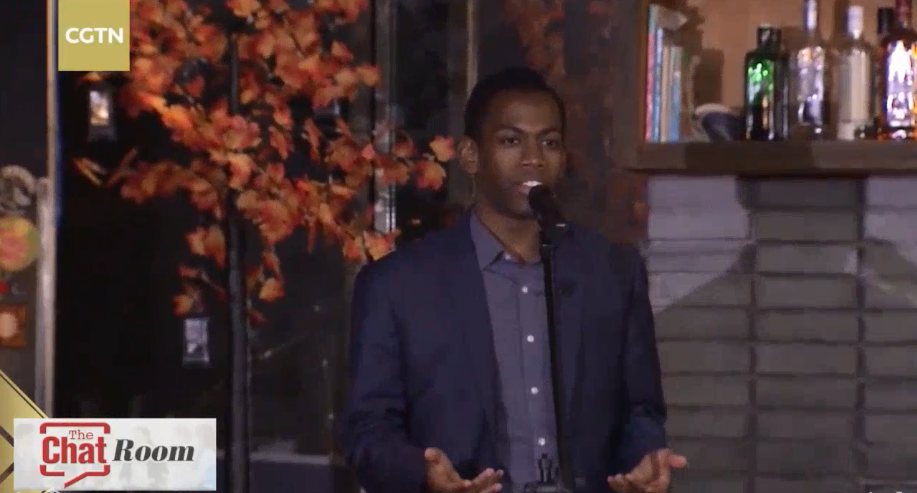
Cale Holmes, journalist and comedian from the United States, in Beijing, China, November 27, 2020. /CGTN
Cale Holmes, journalist and comedian from the United States, in Beijing, China, November 27, 2020. /CGTN
Cale Holmes, American journalist and comedian, believes that buying during this time is a great way to stimulate the economy and bring some things home to rebuild peoples' confidence, which is extremely important during this turbulent time.
Mentioning that it's also helpful for the development of local businesses, Holmes noted that the Double-Eleven and other shopping festivals create jobs in many industries as more districts and rural areas further develop. However, Maisey Wang, a freshman student from New Zealand based in Beijing, argued that it's a short-term event that does not have a significant effect on eliminating poverty.
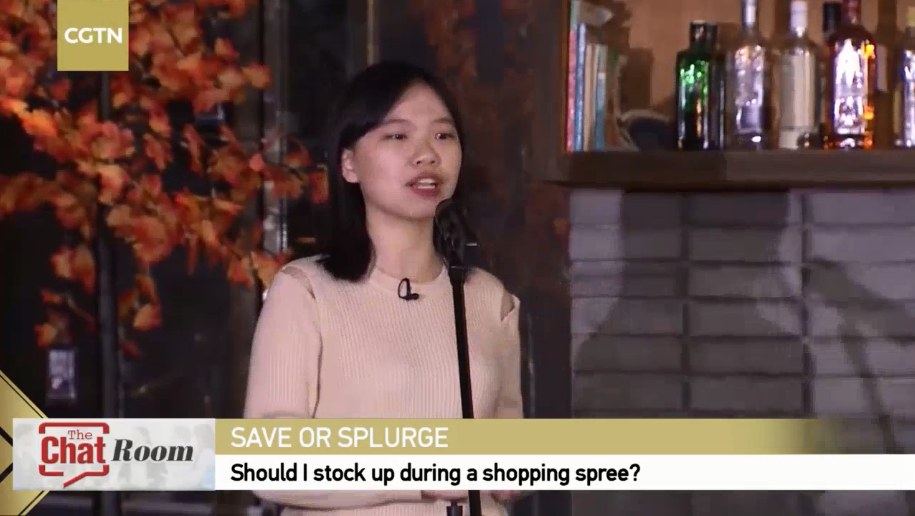
Maisey Wang, a New Zealand freshman student from Renmin University, in Beijing, China, November 27, 2020. /CGTN
Maisey Wang, a New Zealand freshman student from Renmin University, in Beijing, China, November 27, 2020. /CGTN
In a larger scale, Cale Holmes and Dominic Lam, a undergraduate student from Hong Kong, emphasized that people should take part in shopping festivals, because it's a hook encouraging people to spend money in energizing the national economy and also giving a new impetus to consumer spending, one of the most paramount driving forces for global economic growth.

Dominic Lam, undergraduate student from Hong Kong (L) and Cale Holmes in The Chat Room program, in Beijing, China, November 27, 2020. /CGTN
Dominic Lam, undergraduate student from Hong Kong (L) and Cale Holmes in The Chat Room program, in Beijing, China, November 27, 2020. /CGTN
A new eco-friendly shopping way or binge waste-creating
How to practice shopping in an eco-friendly way that aligns peoples' sustainability values was also a major debate. Does this deal-seizing shopping achieved the re-distribution of the resources or only creating more wastes?
Holmes also argued that buying in these campaigns is the "right thing" for the planet since it helps people understand the second-hand market, avoiding wasting money.
Meantime, Ekaterina Kologrivaya, a Russian graduate student, defended that only people who shop with a "lucid mind" can be sustainable shoppers, but what happens is that many shoppers buy things because they are a good deal but not because they need it.
In the debate, it was clear that participants think that shopping during the Double-Eleven or Black Friday only creates more waste for most customers.
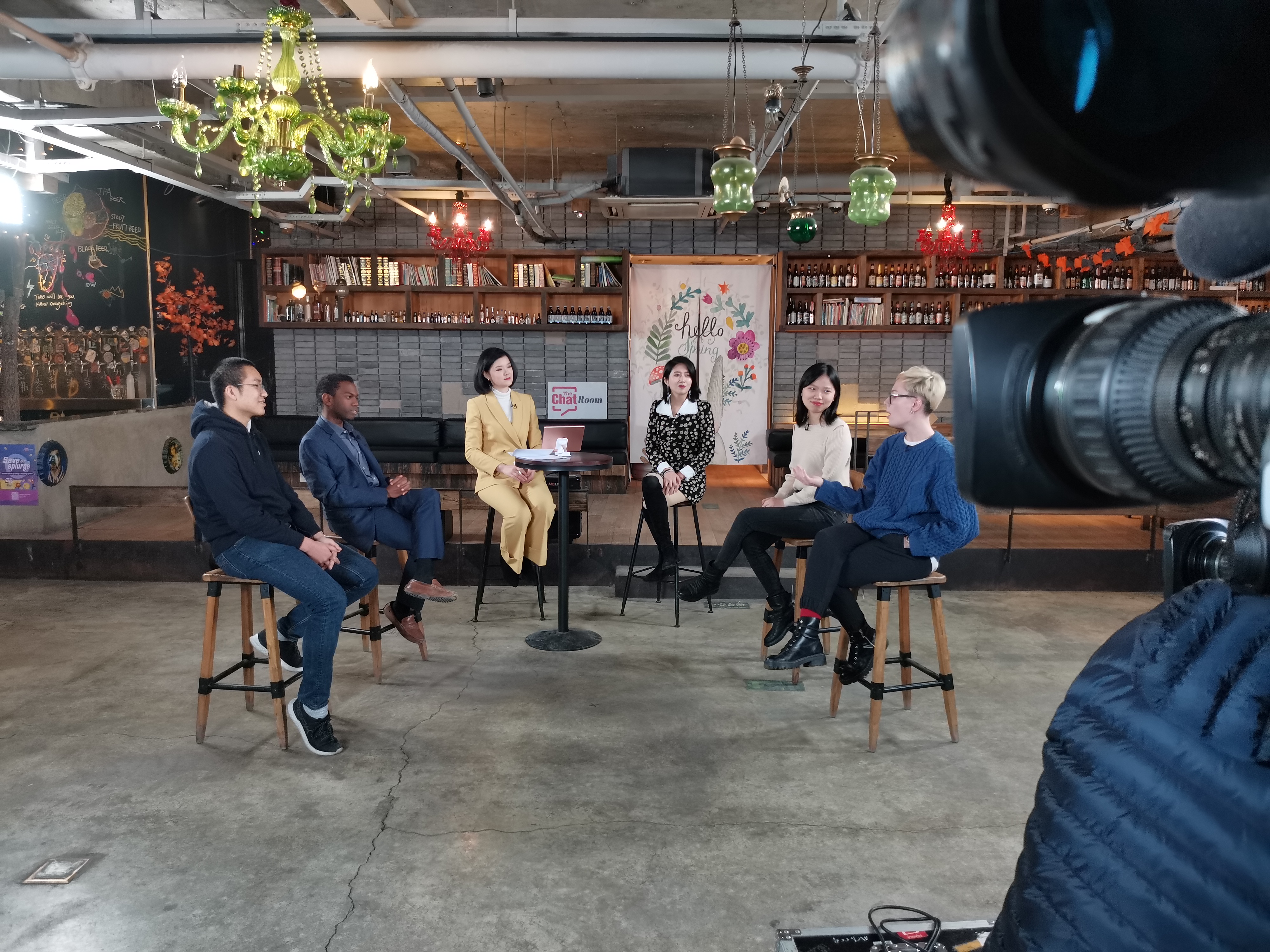
CGTN's live-streaming program "The Chat Room"aired in Beijing, China, November 27, 2020. /CGTN
CGTN's live-streaming program "The Chat Room"aired in Beijing, China, November 27, 2020. /CGTN
A steal or a trap?
From toilet paper to a table, nothing can't be stocked up, according to Lam and Holms. They emphasized that people need those products anyway to solve daily basic problems, then why not just buy them with a reasonable discount?
Wang and Kologrivaya, however, insisted it's just a series of tricks or even traps to lure people to spend money on a deal that seems like a steal.

Maisey Wang (L), a freshman student based in Beijing and Ekaterina Kologrivaya, Russian graduate student, in Beijing, China, November 27,2020./CGTN
Maisey Wang (L), a freshman student based in Beijing and Ekaterina Kologrivaya, Russian graduate student, in Beijing, China, November 27,2020./CGTN
With Christmas around the corner, Holmes noted that this is also an opportunity for parents to buy the children's presents beforehand and with a discount.
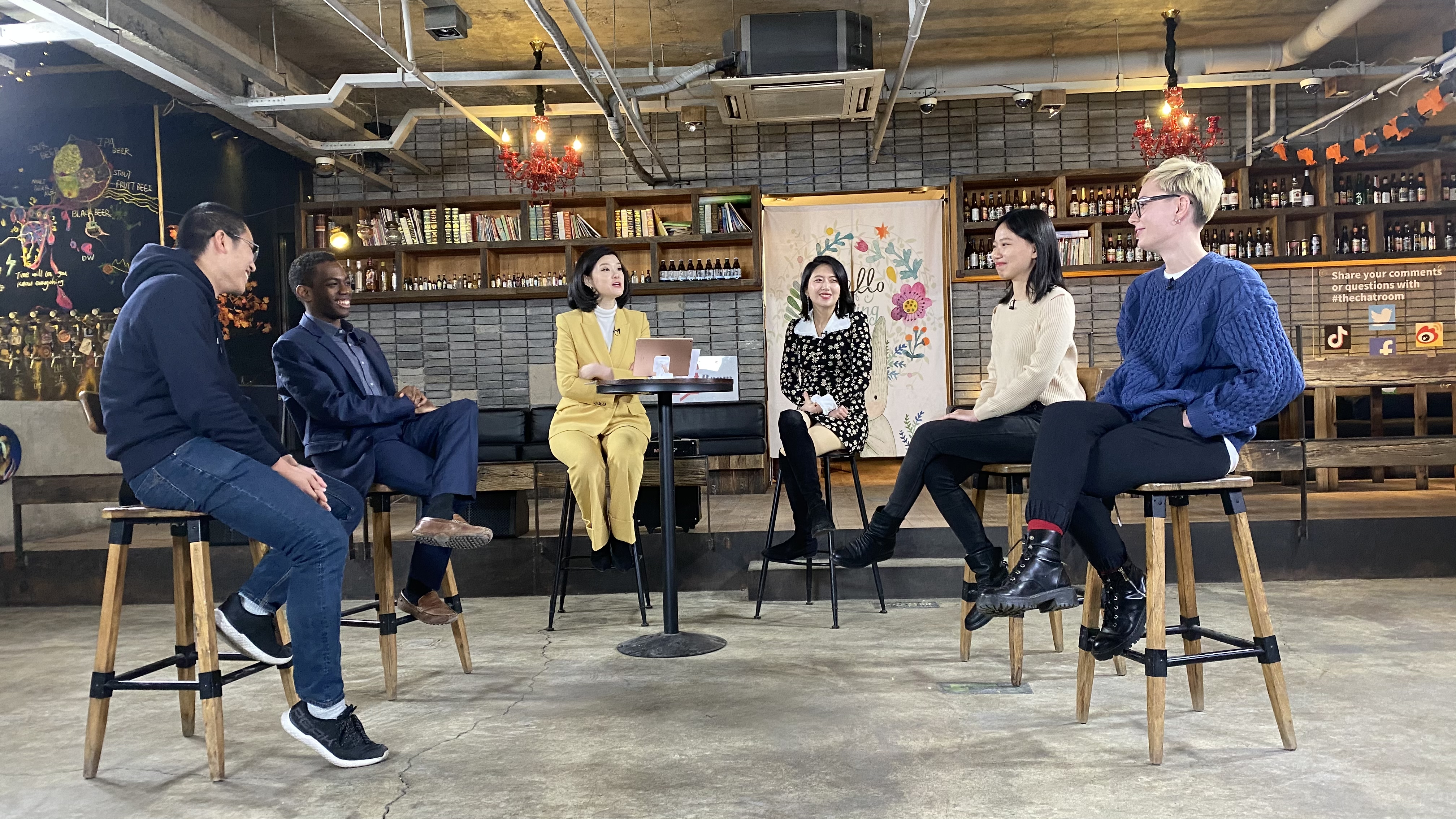
CGTN's livestreaming program "The Chat Room" aired in Beijing, China, November 27, 2020. /CGTN
CGTN's livestreaming program "The Chat Room" aired in Beijing, China, November 27, 2020. /CGTN
"Do you think that happiness is about things or toys?"
Kologrivaya asked following Holmes, who then clarified that, in his opinion, people can't get overall happiness from one purchase, but it does make a difference especially when it comes to momentary confidence. According to him, it's more like a treat, which equals to the voice saying "you deserve it" when people finish their day of work or children want something special during the holiday season.
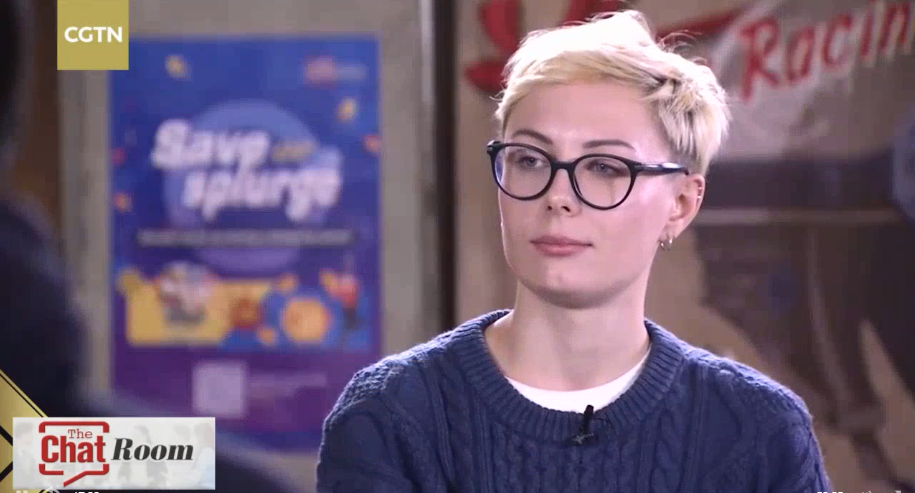
Ekaterina Kologrivaya, Russian graduate student, in Beijing, China, November 27, 2020. /CGTN
Ekaterina Kologrivaya, Russian graduate student, in Beijing, China, November 27, 2020. /CGTN
Indeed, who doesn't need a little sweet treat, especially during this rough year marked by uncertainty? Nonetheless, those little treats are better enjoyed when people are financially smart and spend their hard-earn money wisely, without having to worry about future implications of shopping sprees and empty bank accounts.

